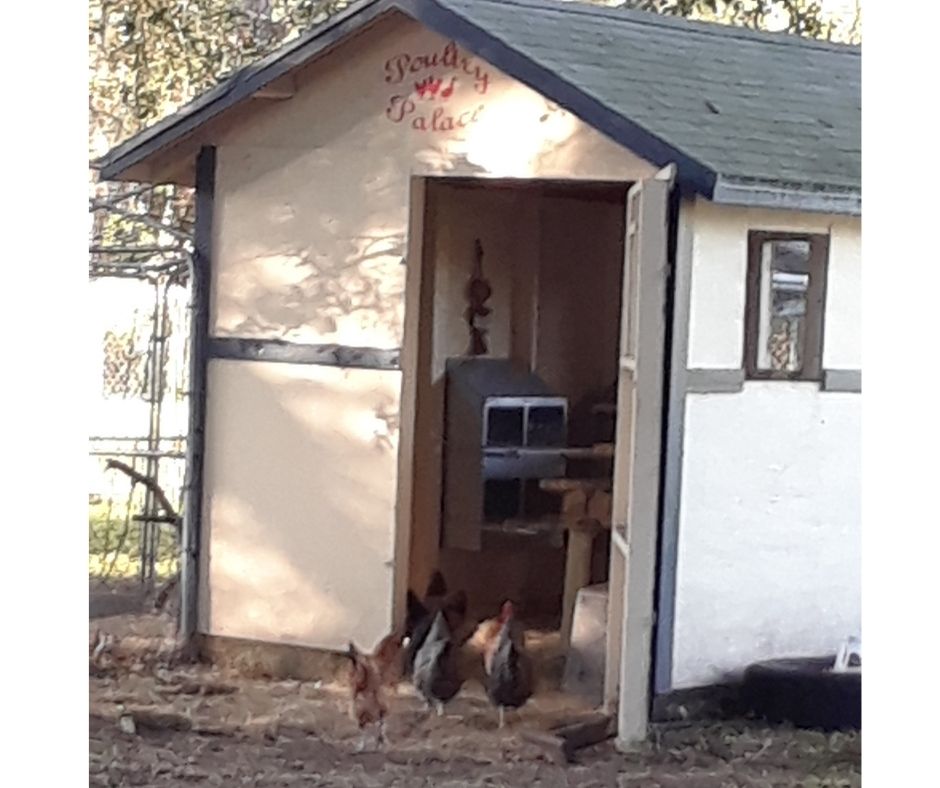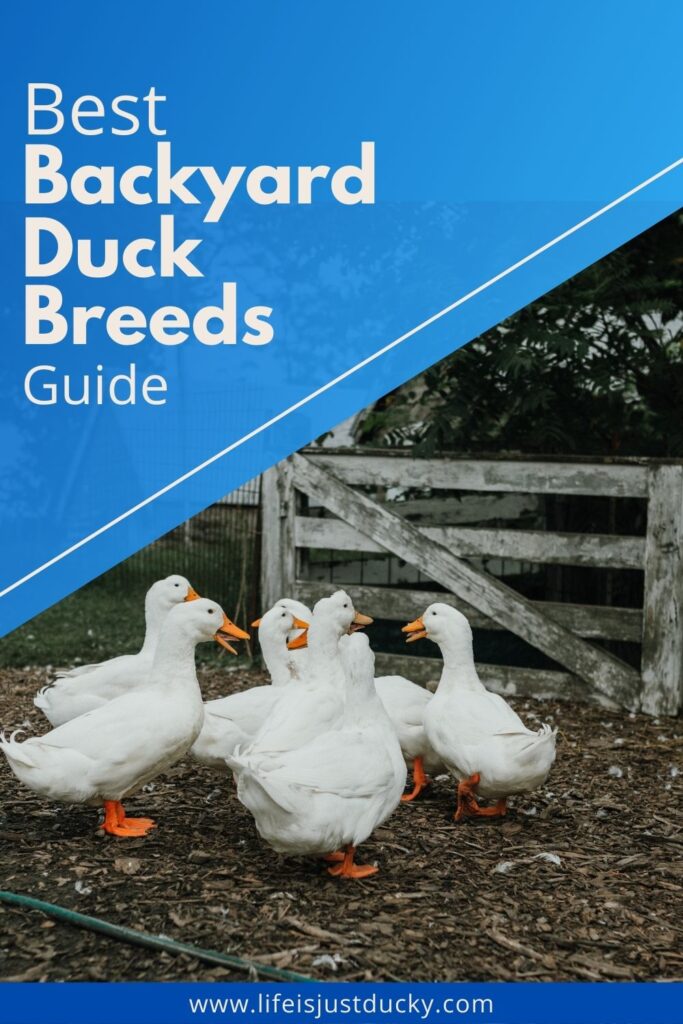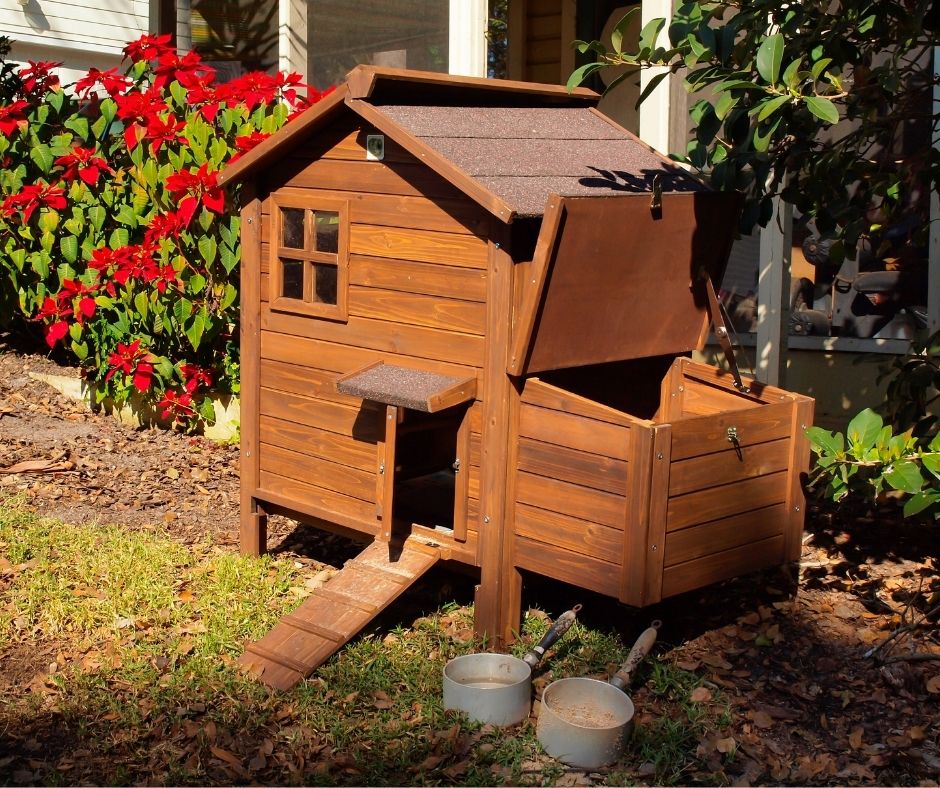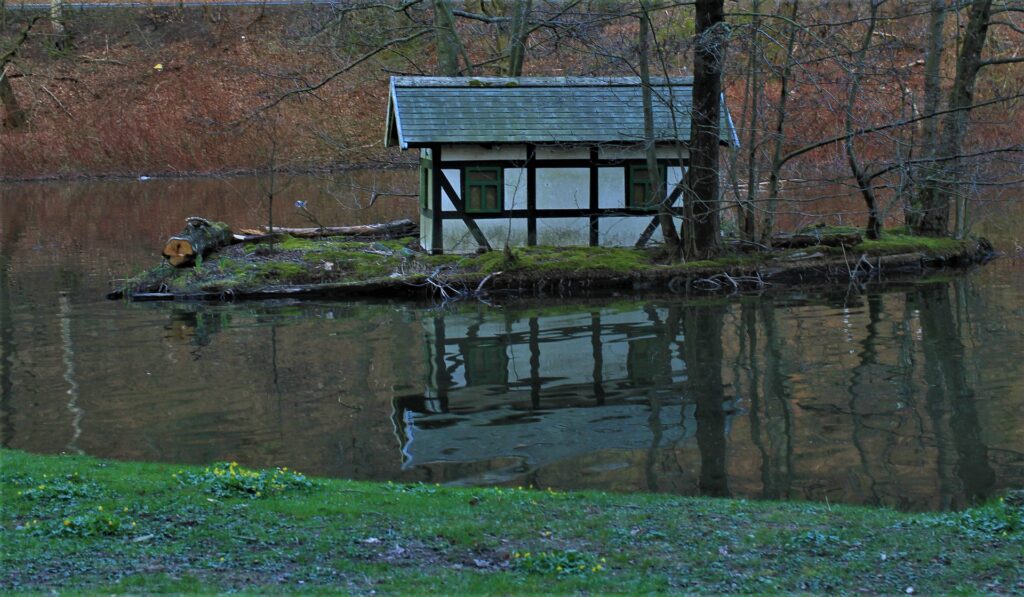When designing your perfect duck house you have a lot of choices, but there are a few things that you just can’t compromise on when it comes to building the best duck coop.
Health, safety, and happiness are your most important considerations. But there are many ways to provide this.
The proper housing also helps protect your feathered friends from the many things that like to eat ducks.
There are many more things that make for a nice duck house, both for them and for you. But this is a list of the necessities. The things that all duck housing should have no matter where you live.
This post may contain affiliate links. Please read my disclosure if you have questions.
Thank you for supporting this site with purchases made through links in this post. For Starters Here’s My Amazon Link
Table of Contents
How Many Ducks Are You Going To Get?
Before you build your beautiful “Duck Mahal” you need to decide how many ducks you want to take care of. You don’t want your duck house to be too small. (By the way, NO ONE EVER said their duck coop was too big….just sayin’)
Related: Raising Ducks 101 – How To Take Care Of Baby Ducklings.
What’s The Best Duck For You?
Sign up for my newsletter and learn more about backyard homesteading, gardening, raising ducks, and a whole lot more. And Get This FREE Duck Breeds Guide And Find Out Which Duck Is Best For You.
What Are Duck Coop ‘Must Haves’?
What do ducks need in a house?
There are as many kinds of duck houses as there are duck owners and there are many nice things to have in a duck house, but there are a few things that are necessary no matter what type of housing you choose.
So before you draw up your plans for your new duck house keep in mind the following necessities for your duck house.
Related>> Get Coop Plans From Easy Coops (ad)
1. Your Ducks Need Security.
The biggest reason for a duck coop is security. Most ducks would be perfectly happy to live outside for the majority of the year.
But one thing is for sure, everything likes to eat ducks and chickens. So, if you want to keep them very long you need to provide them with a safe and secure home. The duck house and any run needs to be constructed in such a way that predators cannot get to your ducks.
That means every opening is covered with ¼” welded wire and all doors closing securely with a good latch. A carabiner works well. If your young child can open it, a raccoon can too. And you would be amazed at how small a hole many critters can squeeze or reach through to do damage to your precious ducks.
You also need a buried skirt of welded wire all the way around anything with a dirt bottom as many predators can (and will) dig under.
Though not necessary, an automatic door will give you peace of mind on the nights you are out late and they let you sleep in late on the rare morning that you can.
2. Protect Your Ducks From The Weather.
The second biggest reason for a coop is the weather. Even though ducks adapt very well to both hot weather climates and cold snowy climates, ducks still need protection from the elements. Rain, Snow, Wind, and the Sun.
Not only is it for the comfort of your flock, but providing your ducks with a refuge from weather extremes improves eggs and meat production. It takes a lot of energy for them to keep themselves warm or to cool off.
Though ducks like water and can take cold very well, they, like all the rest of us, need to be able to get out of it, dry off and be comfortable.
We all need a clean dry place to sleep. The wind is one of the biggest things you need to protect them from.
Your duck housing needs a secure roof to keep them dry. If your summers and winters are mild you don’t need to insulate your coop. But, unless it stays very warm in the winter, it should be solid enough to not be drafty.
Where you put your coop makes a difference too. Placing your duck housing under trees can help protect your ducks from the heat of summer and a windbreak can keep your friends warmer in the winter.
Related: What to Feed Ducklings!
3. Provide Enough Space.
It’s such a joy to raise your feathered friends in a more natural environment where they have enough space that they can spread their wings and be ducks!
Ducks need more space than chickens. For one thing, ducks don’t stack up on roosts like chickens do, they sleep on the floor.
In a coop, ducks need about 1 ½ to 2 sq ft (46 -61 sq cm) per bird, if they also are able to get outside. This is why you need to think about how many you are planning on getting? In the run, they need even more space. There a duck needs at least 15 – 20 sq ft (457 -609 sq cm) per bird.
Could the number of ducks you get increase at some point? It’s a good idea to plan for more if you have the ability to do so. Making a larger coop gives you the option of expanding your flock sometime in the future.
Having a larger coop and run is very practical in so many ways. First, a larger home is easier to keep clean. Ducks poop a lot and it is very wet. The more space they have the longer it takes for them to saturate their bedding.
Related: Deep Litter – The Best Method For A Duck And Chicken Run.
The more space your ducks have the better they get along. Remember the long car rides with your siblings? Ducks aren’t much different. They get along much better if they have a place to get away from the ones that are getting on their nerves.
4. Is Your Duck Door Big Enough?
Is the door big enough? A duck is both taller and wider than a chicken. Most chicken coop doors are not designed for your larger ducks. Ducks also are not fond of going single file through the door. A wide door is perfect for harmony among your flock.
Also, think about adding a door for humans. It is so much easier to collect eggs and clean if you can go into your chicken coop and stand up.
5. Do You Need A Ramp For Your Duck Coop?
Many chicken coops are built up off the ground with a ramp to get inside.
However, ducks are designed for the water and not for the ground. With those big webbed feet, they have a hard time climbing steep ramps.
They need their coop close to the ground or at least they need to have a much longer ramp so it is easier for the ducks to climb.
Related: Duck Eggs Vs. Chicken Eggs, Why Duck Eggs Are Better.
6. Provide Good Ventilation.
Something often overlooked is ventilation. It is very important to provide your coop with good ventilation.
Ducks put off a lot of water. From their feathers to their poop and even from their breath. Moisture is more of a danger than the cold is in winter.
Too much moisture will cause mold to grow and your ducks are much more likely to get frostbite from a moist environment than a dry one.
They also need good air exchange. Ammonia can build up if they don’t have good ventilation and this is not good for their respiratory systems.
You might think that they need to be sealed up tightly in the cold of winter, but actually, good ventilation is more important than keeping the cold out.
Vents cut in the top of the walls and covered with welded wire is a good way to provide it. If you are concerned about the wind, place the vents on the side of the coop where the wind does not generally blow. In the northern hemisphere, that is usually the south and east sides.
Related: Do Ducks Need A Pond?
7. Design Your Coop To Be Easy To Clean.
You want your duck housing to be easy to clean. Cleanliness is important for good animal health. If it is difficult to reach, it won’t be cleaned as often as it should be.
Designing a house that you can stand up in or that has a slide-out bottom are good places to start. As is the material that you build the floor out of. Poured concrete is easy to hose off and use a long-handled scrub brush on. (consider how the water will drain away) If you have a wooden floor, consider covering the floor with flooring vinyl which is easy to clean.
A little thought ahead of time will save you hours of cleaning in the future.
In between cleanings, if your coop starts to smell a bit…well like a coop, you can always sprinkle a bit of Sweet PDZ coop refresher. It is non-toxic, all-natural, and organic. You will love it!

8. Build Your Coop Close To Water.
You will be giving your ducks fresh drinking water every day and probably filling small pools for them to bathe in, so make sure it is close to a water source. If you live where pipes and hoses can freeze consider a frostproof yard hydrant.
Trying to haul buckets of water will get tiring in the summertime and will seem an almost impossible task come the cold days of winter.
Related: How To Get Clean Water For My Ducks.
9. Where Should You Locate You Duck Coop?
You will be visiting your ducks every day, probably twice a day. So make sure you build your duck house close enough to your house.
But it should be far enough that you don’t get flies in your house in the summer.
Remember, you will be going to the duck house every day, rain or shine, 100°F or -20°F. (37.7°C or -28.8°C)
Make it as close and convenient as possible and practical.
When deciding where to put your coop, keep your neighbors in mind too. Keeping the peace from the start is worth a world of apologies.
10. Put You Coop On High Ground.
Make sure your coop is placed on high ground where it won’t flood or water will not pool. A muddy duck run is a breeding ground for bad stuff. It’s also no fun to have to trudge through while taking care of your little ducks.
But also think about runoff. You don’t want your duck feces contaminating local rivers. You can build swales to contain any runoff if necessary.
A Well Designed Duck House.
By putting some forethought into the duck housing you are going to build. You will avoid many pitfalls and save yourself so much time and energy and yes in the long run even money. Besides, providing your ducks with these duck house essentials, you will be making your flock a happy and healthy home to live in.
Are You Ready To Start Your Flock?
Cackle Hatchery is ready to help. Order Your Ducks Today.
Did you like this post? Then, I’d love it if you’d share it!
Want some more top posts? Check out this list of Readers Favorites.
Happy Gardening!

I believe everyone can grow at least part of their own food! Let me show you how.










I have a dilemma. First, I had two ducklings (brought home April 8th) but now only have 1 (5 weeks old). The 10 chicks I had under lamps in the house came out after the very unfortunate hawk incident which left me with only one duck. I let the ducks out to eat grass for a few hours a day and kept an eye on them. On the third day, I took my eye off them for an hour and bam, a hawk killed one. It was awful! Now the duck and all 10 chicks are out in the coop (indoor and outdoor). I don’t know what to do about a swimming pool for the duck. I have a baby pool, but I can’t leave uncovered bc of the chicks. Everyday I go uncover it and put the duck in while supervising, however he stays in for about 5 seconds and then frantically scrambles out. I put a dog dish of water out for him to dip his beak into but doesn’t he need to have access to water that he can submerge himself in? I don’t want to separate him from the chickens bc he loves being with them, but until the chicks are big enough to not drown in the water, what should I do?
Your duck does not NEED to swim. They like to and it helps keep mites off them. However, if there is a danger to his coop mates, it is better to not have it or only have it when he is supervised. He does, however, need to be able to submerge his bill and eyes. If he has that he will be good for now. It would be a good idea to build a covered run so your birds can get out without being hawk food. Check out the article on predators. I hope that helps.